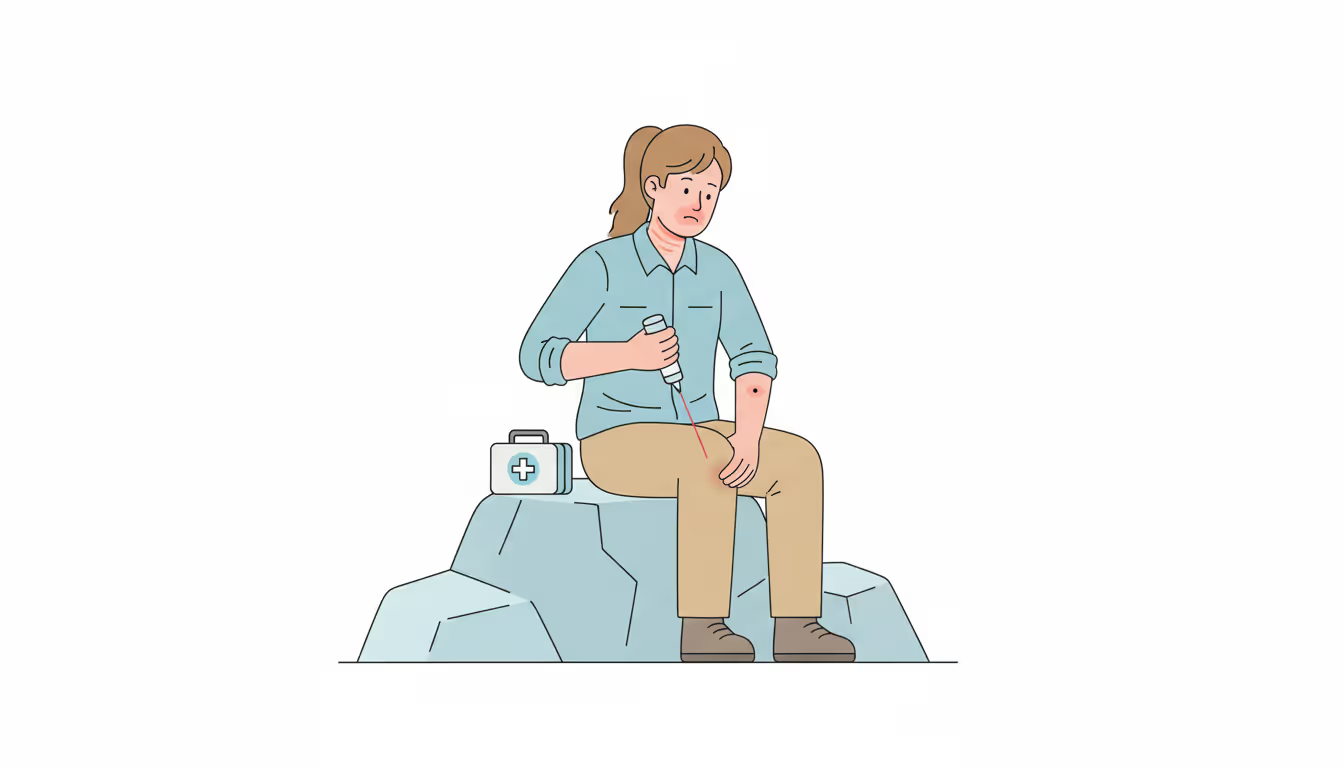
Bee Sting:A bee sting occurs when the skin is pierced by a bee's stinger. This can trigger an allergic reaction, which in some cases may be life-threatening. People who are allergic to bee stings should avoid exposure and seek immediate treatment if stung. Those with known allergies should carry self-injectable medication when in high-risk areas. Hikers are advised to wear long pants and sleeves to minimize risk. If attacked, individuals should seek shelter and protect their face to prevent airway stings. Treatment varies with symptom severity. Stingers should be removed quickly, and the area washed with soap and water. Applying ice packs, taking pain relievers, and using anti-itch medications can alleviate local reactions. More severe cases might require intravenous fluids, oxygen, medication to open breathing passages, or other interventions. In some situations, injection therapy is an effective preventive measure. For those without allergies, bee stings are generally a minor inconvenience unless there are multiple stings.




